Current Projects
The goal of this page is to provide the most important points from policies and articles, review our project summaries, and provide updates on various health measures.
-
Appalachian Regional Commission Health Grants Evaluation

The East Tennessee State University Center for Rural Health and Research is evaluating the health grant program of the Appalachian Regional Commission (ARC). Using a mixed methods design that combines qualitative and quantitative data, the evaluation approach will improve understanding of grant performance, grantee implementation experiences, and grantee practices. Additionally, it will support the development of case studies featuring promising practices and/or innovative approaches used by grantees. Ultimately, findings will inform recommendations for ARC and local stakeholders aimed at strengthening the implementation and impact of health projects across the Appalachian Region.
-
Central Appalachia Flood Monitoring Dashboard
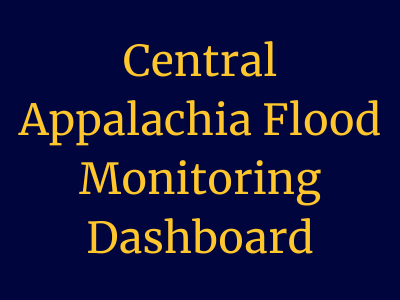
CRHR is developing a cutting-edge dashboard using generative artificial intelligence to assist in monitoring flooding in Central Appalachia. The project, funded by a $20,000 grant from Earth Science Information Partners (ESIP) Lab, aims to transform climate resilience efforts by developing and automating dashboards with cutting-edge generative AI models and tools. CRHR and partners from Oklahoma State University will create a state-of-the-art flood monitoring dashboard for Central Appalachia (comprising 82 counties in Eastern Kentucky, West Virginia, Southwest Virginia, and Northeast Tennessee) to test its reusability and replicability. The dashboard will display historical flooding events, flood predictions, demographic data, social determinants of health, and access to healthcare. The research will provide valuable insights and practical tools for data scientists, policymakers, researchers, emergency management specialists, and community leaders, making a substantial impact on how we prepare for and respond to natural hazards.
-
Evaluation of Ballad Health’s PEERhelp Program
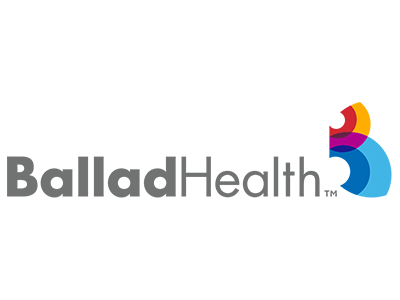
In collaboration with Ballad Health, a team of researchers at the CRHR to evaluate the impacts of Ballad Health’s PEERhelp program. The program was designed to provide support to individuals being released from prisons with a history of substance use disorder. Through benchmarks, goal setting, and support for a variety of health-related social needs, the ultimate goal of the program is gainful employment 1 year after release. In addition to measuring gainful employment, the evaluation is being designed to measure the following outcomes: program participation, financial stability, recovery, healthcare utilization, employment, and recidivism.
-
Examining Rural Hospital Inpatient Bypass in Tennessee
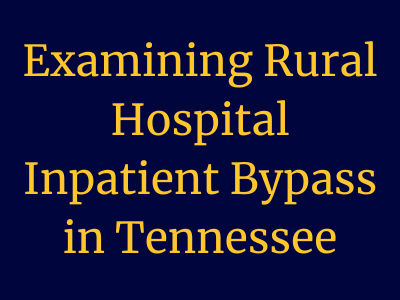
In collaboration with contractor NORC at the University of Chicago (NORC), CRHR is conducting an analysis of hospital inpatient bypass in rural Tennessee hospitals to understand the drivers and characteristics of rural hospital bypass in the state. The two-pronged analysis includes a quantitative analysis of Tennessee Hospital Discharge Data System (HDDS) all-payer data and key informant interviews with hospital leaders across the state to gauge the characteristics and motivation of patients bypassing rural hospitals and understand how the local supply of both primary and specialty care services impacts bypass rates. This mixed-methods analysis seeks to provide insight into why patients seek health care outside of their local service area to inform and enhance health care delivery and policy.
-
The Consortium for Workforce Research in Public Health
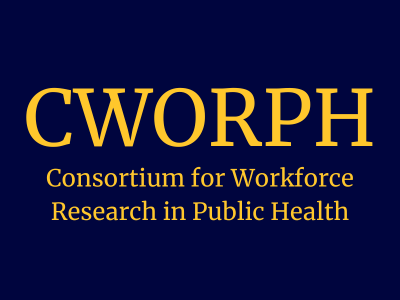
The East Tennessee State University Center for Rural Health and Research is part of a six-university consortium to lead public health workforce research. The Consortium for Workforce Research in Public Health (CWORPH) is funded by a first-of-its-kind joint $4.7 million cooperative agreement from the Health Resources and Services Administration (HRSA) and the Centers for Disease Control and Prevention (CDC). The universities (University of Minnesota, Johns Hopkins University, Columbia University, Indiana University, University of Washington, and ETSU) are conducting robust workforce research, evaluation, and analysis to help increase public health workforce capacity for current and future emergencies. The studies led by CRHR focus on public health workers’ needs in rural jurisdictions. CRHR studies include:
- Public Health Workforce Composition and Representativeness
- Career Ladders in Public Health
- Public Health Nursing Supply, Distribution, and Demand
- Public Health Accreditation Board PHIG Funding Activities
-
Development of a Rural Recovery Ecosystem Index
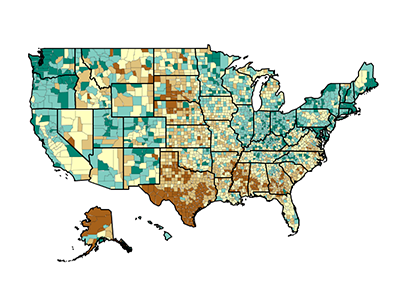
Funded by the Fletcher Group as part of their Health Resources and Services Administration (HRSA), Federal Office of Rural Health Policy (FORHP) Technical Assistance Center, CRHR collaborated with the ETSU Addiction Science Center and NORC Walsh Center for Rural Health Analysis to develop the Recovery Ecosystem Index Mapping Tool. The tool lets users measure the strength of substance use recovery ecosystems in every county in the United States and explore associations with overdose deaths and other sociodemographic and economic factors. The Recovery Ecosystem Index comprises 14 indicators that impact the strength of a recovery ecosystem, organized into three components - SUD Treatment, Continuum of SUD Support, and Infrastructure and Social Factors. The tool also allows users to create data overlays that show the association between the Recovery Ecosystem Index and factors such as overdose mortality rates, sociodemographics, and economic factors such as poverty rate, education, and race and ethnicity.
-
Drinking Water & Health in Rural Appalachia
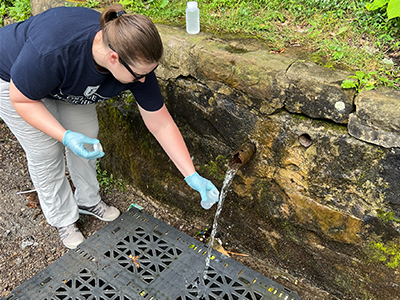
CRHR is collaborating with Virginia Tech, the University of Virginia, the Appalachia Service Project, and Ballad Health to examine drinking water contamination and associated health outcomes across ten counties in Northeast Tennessee and Southwest Virginia. The research team recently submitted a proposal to the National Institute of Allergy and Infectious Diseases (NIAID) to do a larger study based on these pilots.
-
ETSU/NORC Rural Health Research Center
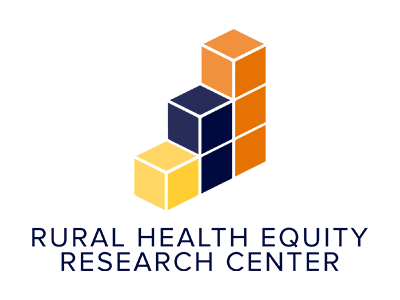
The ETSU/NORC Rural Health Research Center is funded by the Health Resources and Services Administration Federal Office of Rural Health Policy. The Center’s mission is to develop strategies and recommendations for policy makers, rural healthcare providers and rural communities to mitigate the individual and community-level impacts of substance use disorder (SUD), improve access to healthcare and social services, and improve population health.
-
Milbank Memorial Policy Briefs
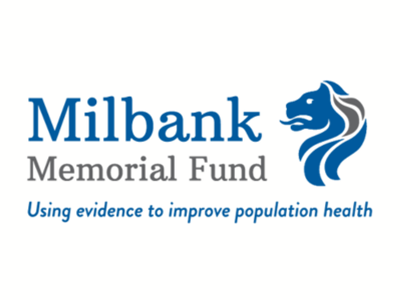
CRHR is writing three health policy briefs for the Milbank Memorial Fund. The first brief will focus on describing the history, federal and state policies, and evidence around non-profit hospitals and conversion foundations, providing comparisons and identifying potential future policy and research priorities. The second brief will explore area-level vulnerability indices (e.g., Area Deprivation Index, Social Vulnerability Index) for policy and resource allocation, describing their differences, usage by states, and limitations. The third brief will describe challenges and practical strategies for discussing politicized topics related to health equity and disparities, especially in rural communities.
-
Nursing Dashboard

In partnership with the Tennessee Center for Nursing Advancement, CRHR is developing a data dashboard to provide insights into the nursing workforce's distribution by specialty, education level, age, race, and ethnicity. It will also include information on community-level social determinants of health (SDOH), leveraging various data sources, including, but not limited to, the Tennessee Department of Health, American Community Survey, County Health Rankings, CDC Wonder, the NORC Rural Health Mapping Tool, the NORC Recovery Ecosystem Index Tool, and the Area Health Resource File.
-
Regional Public Colleges and University Central Appalachia Health Consortium

CRHR is leading an effort to address health care workforce challenges, foster economic development and promote regional prosperity in Central Appalachia.
Dubbed the Regional Public Colleges and Universities (RPCU) Central Appalachia Health Consortium, this ground-breaking initiative is part of the Appalachian Regional Commission’s Appalachia Regional Initiative for Stronger Economies. In addition to ETSU, universities that are part of this collaboration include Appalachian State University, Eastern Kentucky University, Marshall University, Ohio University, Radford University and Shawnee State University.The consortium will explore a variety of strategies for working together and impacting health and economic outcomes in central Appalachia. These include articulation agreements, local pipeline development, cross-institution internships, in-state tuition arrangements, elective options, streamlined applications and preferred admissions.
Consortium members will work to implement five major activities as part of this multi-state effort: formalizing relationships between university partners, conducting a needs gap analysis of health care workforce training, research review, developing an implementation plan and developing an RPCU Central Appalachia Health Consortium Landing Page.-
Strong Accountable Care Community
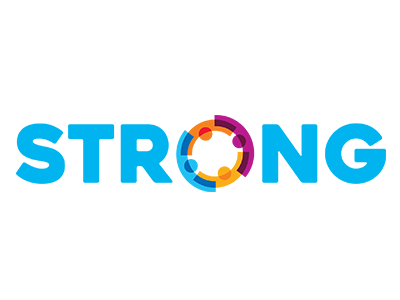
The STRONG (Striving Towards Resilience & Opportunity for the Next Generation) Accountable Care Community is a community coalition of over 300 partner organizations in Northeast Tennessee and Southwest Virginia. The ACC is made up of organizations working on a common agenda to improve the ability of regional children to be college and career-ready and better position them for optimal health outcomes. In addition to serving as an organizational ACC member, CRHR is engaged with various workgroups to provide expertise and technical support to the ACC as requested.
-
StrongLINK (Longitudinal Initiative for Newborns and Kids)

In April 2023, Ballad Health and CRHR began enrolling participants in the StrongLINK program. Through StrongLINK, expectant mothers who give birth at Ballad facilities are asked to participate in periodic surveys about their health and their children’s health. StrongLINK aims to better understand the social-related health needs of families in the Appalachian Highlands. Survey information will be collected over 18 years and create a longitudinal data repository measuring the medical, social, and educational outcomes of participating families. This data will inform future research opportunities to investigate child and maternal rural health.
-
Tennessee Department of Health - National Initiative to Address COVID-19 Health Disparities
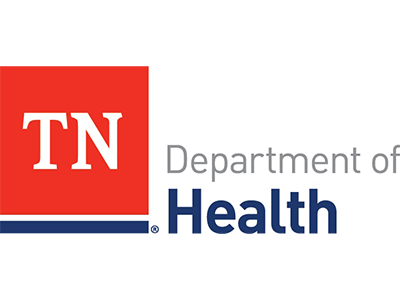
CRHR is evaluating the Tennessee Department of Health implementation of the Centers for Disease Control and Prevention (CDC)-funded National Initiative to Address COVID-19 Health Disparities. CRHR has several key roles in this initiative:
- East Grand Division Coordinating Center: CRHR coordinates work with community-and faith-based organizations across the East Grand Division, sub-contracting approximately $2.35 million to 12 organizations.
- Statewide Data Collection Support: CRHR employs Data Support Specialists (DSS) across the state, who work with the academic coordinating centers at ETSU (East Tennessee), Meharry Medical College (Middle Tennessee), and the University of Tennessee Health Science Center (West Tennessee).
- Statewide Data Evaluation: CRHR worked with TDH to design the statewide evaluation of the TDH grant program, including the development of metrics and a sub-awardee reporting system.
- Case Study Development: CRHR is partnering with the academic coordinating centers to create exemplar case studies to highlight examples of unique and inspiring programs within each grand division.
-
Tennessee Department of Health’s Public Health Infrastructure Grant (PHIG)

Through PHIG, the Center provides evaluation support for Tennessee’s efforts to strengthen performance management and accountability of its public health workforce. By coordinating with the Office of Primary Prevention, the team is developing an evaluation plan, creating an online data collection system to track grant performance metrics, developing progress and data reports, and providing other grant evaluation and data analysis support as needed. In addition, the Center is providing technical assistance in designing and implementing two Targeted Evaluation Projects (TEPs) for TDH that meet department-specific needs regarding training and procurement processes. Through these efforts, Tennessee will ensure high-quality and consistent data to support evaluation, performance management, and accountability for this grant.
-
Tennessee Multi-Sector Plan for Aging
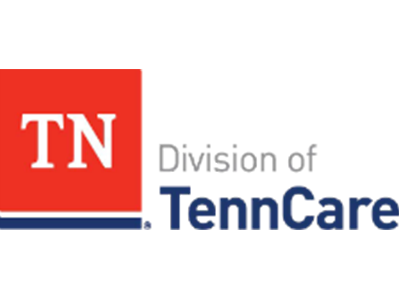
The state of Tennessee was selected as one of ten new states to develop a state aging plan, with support from the Center for Healthcare Strategies. Foundational to the development of the state aging plan is a data resource, developed by CRHR in collaboration with the Center for Healthcare Strategies and TennCare. CRHR created an online dashboard with comprehensive data related to various aspects of aging, such as demographics, health and well-being, economic security, social engagement, and community support. The dashboard is accessible from the CRHR website. This data can be used to identify disparities, monitor progress, and measure the impact of policies and interventions to improve the well-being of older adults in Tennessee. CRHR is assisting TennCare in convening regional symposiums to share the dashboard and gather information that will inform the state aging plan.